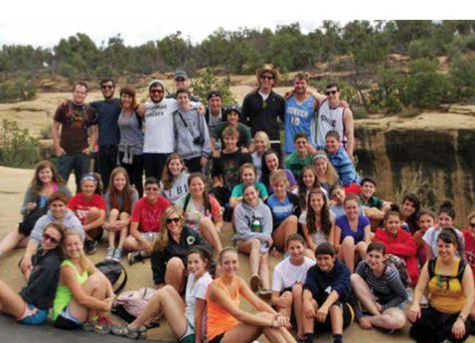Jewish summer camps are a uniquely American invention, an invention that over the years has changed the lives of countless Jewish youngsters. Founded in 1883 by the Jewish Working Girls Vacation Society, located in New York, the first Jewish summer camp was a girls’ camp.
The concept expanded widely at the turn of the 20th century as a means of giving inner-city youth, many of whom were European immigrants living in the squalor of settlement houses or orphanages, a chance to breathe the unpolluted air of the countryside. Focused on social services, some of the camps directed their programming as a way to accelerate new immigrant children into the American Jewish way of life.
In the polio epidemic of the 1940s and ’50s, many inner-city youth were sent to summer camps in the belief that the fresh air and camp activities would help to stop the spread of the crippling disease. In the 1950s and ’60s the focus of the camps shifted from social services to edu- cational experiences and Jewish identity. These fresh-air programs blended spiritual, educational and recreational components. The campers were Jewish, and the camps were run by Jewish communities with Jewish counselors, in a nurturing and supportive Jewish manner. The camps offered common Jewish experiences, building lifelong friend- ships in the fun of the outdoors.
“Summer sleepover camp is where I learned confidence and forged lifelong friend- ships,” states 1950s camper Dr. Barry Friedman, of Tucson. “It taught me to ‘give it a shot,’ I couldn’t fail. My experiences at camp, what I learned there about myself and life in general, have been instrumental in directing me along a Jewish life.”
There is broad agreement about the power of all summer camps as a transformational experience for children, but that has been especially true at Jewish camps. The effects of camping on Jewish identity are well documented. Jewish Camping 2000, by Gary Tobin and Meryle Weinstein, cites an Atlanta Federation study that showed that adults who attended Jewish camp as children are more than 50% more likely to belong to a synagogue than those who did not attend camp.
Over the centuries, Jewish camps have evolved to meet the community’s most pressing needs. No longer focused on providing refuge from the squalor of the inner city, today the Jewish camping experience may be specifically focused on celebrating the art of Yiddish, computer science and the Kabbalah, kosher cuisine or Jewish ethics in the teenager’s high-tech world. Today, with synagogue membership dwindling, the struggle to instill Jewish leadership in the next generation is a daunting task. The Jewish camp of today is one of the crucial
tools being utilized to build pride of heritage in today’s youth, the Jewish leaders of tomorrow.
Camp programs have definitely changed, but yesterday and today Jewish campers still sit around campfires in the same camps their grandparents attend- ed. Campers still fill the night skies with Israeli songs old and new. Jewish camps continue to build Jewish pride, com- bat assimilation and build friendships that last a lifetime. Sometimes those friendships become a Jewish family and the next generation of Jewish campers. The statement above proves that while Jewish camps will continue to adapt to our community’s needs, some things stay eternally the same, and the mission of the Jewish camp is fulfilled today as it was yesterday.






